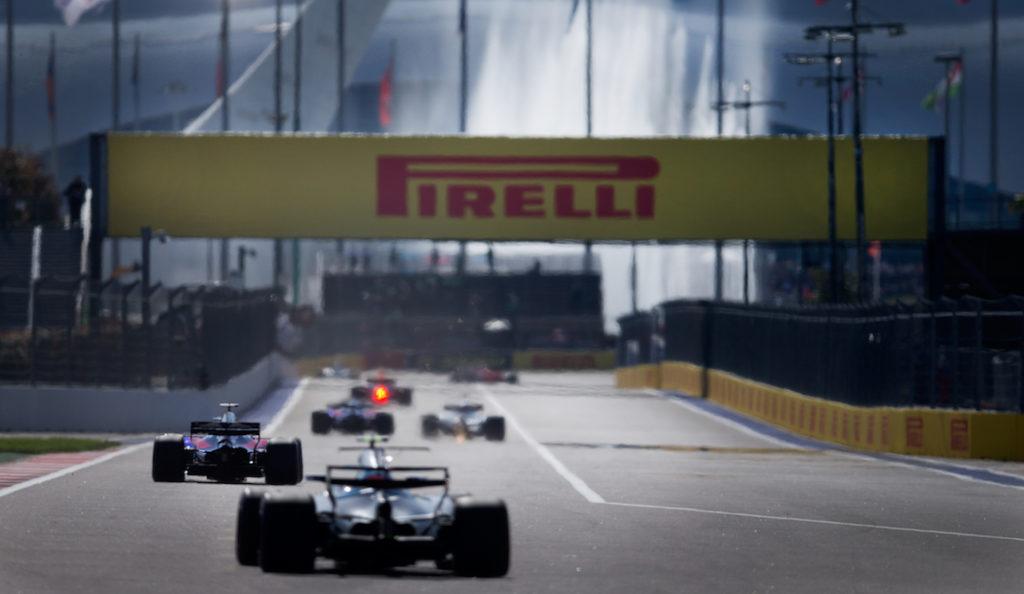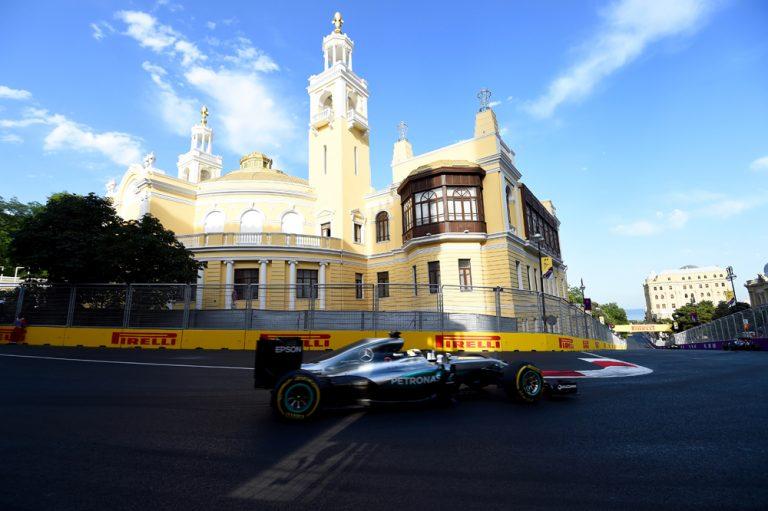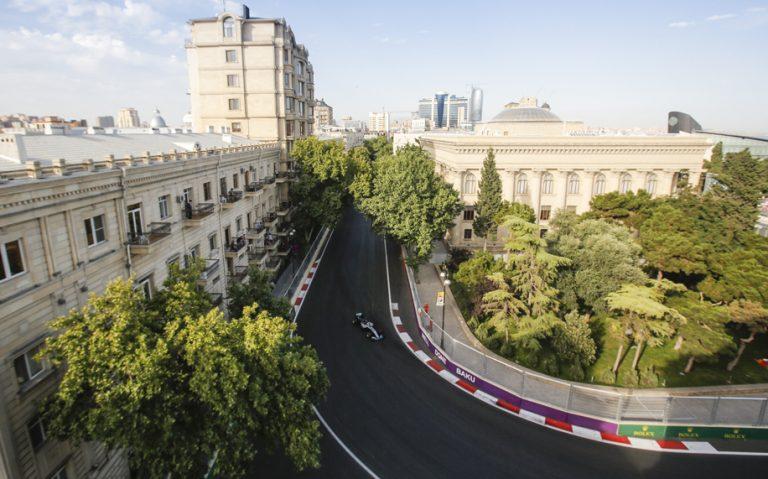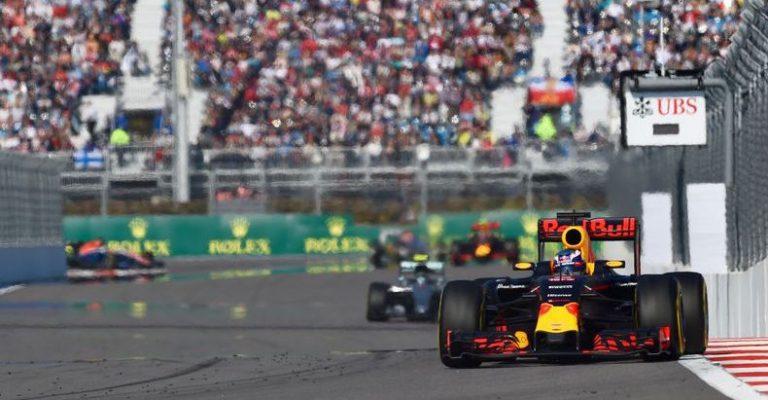
Argentina is back in the frame, Baku is looking for a better deal, Kyalami can’t afford it, and Sochi Autodrom is changing hands. Meanwhile, Toto Wolff thinks 21 races is enough and Liberty Media wants to introduce a league table for events. Welcome to the February roundup!
February began with the unlikely news that the World Endurance Calendar would be changed to accommodate Fernando Alonso’s schedule. We can’t imagine the F1 calendar being influenced in the same way, but it does demonstrate the power that a star driver can exert! Liberty Media also announced their decision to tweak the start times of the races this season (mainly for the benefit of TV viewers), with all races starting ten minutes after the hour and the start times for the European rounds pushed back 70 minutes. It’s been quiet this month on the Dutch and Danish Grand Prix front, though Formula 1 has quietly applied for trademarks in both countries, while retired F1 supremo Bernie Ecclestone thinks we will see a race in Vietnam by 2020.
Is the F1 calendar too long?
Mercedes boss Toto Wolff has weighed in on the F1 calendar debate ahead of this year’s 21-race season, the joint longest on record: “I don’t think we should be going further than 21 races because it is simply diluting the exclusivity of the event. It is something we are looking ahead thinking ‘okay, great let’s do 21 or more’ but last year with 20 races and it was already very difficult for the organization so this is what I see as the limit. It is very difficult for the team because not only are you doing 21 races but all of us have a normal day job as well.”
New F1 owners Liberty Media would like to see the calendar grow to 25 races in the near future, with races in “destination” cities such as Miami and Copenhagen a priority. One way to accommodate more races would be to shorten the current Grand Prix weekend format (removing Friday practice sessions, for example), an idea that Ross Brawn, Formula 1’s Managing Director of Motorsports, has admitted is on the table. Brawn has also floated the possibility of F1 adopting a ‘league table’ for events “where over time we’ve got a waiting list of top-class circuits and promoters that are waiting to get into Formula 1, and then if there’s any race that is not working well, you relegate that and put a strong race in.”
New deal for Azerbaijan?
Meanwhile, the organizers of the Azerbaijan Grand Prix are hoping to sit down with Formula 1 after this year’s race to negotiate a new 5-year deal from 2020 on more agreeable financial terms. Azad Rahimov, Azerbaijan’s Minister of Youth and Sports (and father of Baku City Circuit director Arif Rahimov), had this to say: “Everyone understands that the contract we have now is unacceptable. I think the new leadership of Formula 1 understands that as well. We are talking about a number of commercial conditions, sponsorship rights and the price that we pay. But I think both ourselves and the leadership of Formula One have the desire to leave the race here.”
Argentina to return?
The Independent broke the news that a leading event promoter in Argentina is in talks with Liberty Media about bringing the Argentine Grand Prix back to the F1 calendar for the first time since 1998. Arturo Rubinstein, president of investment firm Blue Capital, has confirmed he is negotiating with Liberty Media about holding a race at Autódromo de Buenos Aires as early as 2019, and that $30m USD in government funds have been committed to bring the circuit up to F1 standards.
Kyalami ready to welcome back Formula 1
The Kyalami circuit, which last hosted the South African Grand Prix in 1993, is ready to welcome Formula 1 back, “but the prohibitive costs of hosting Formula One is really the bugbear,” says circuit spokesperson Christo Kruger. “It’s just not financially feasible in the current structure to host Formula One.” Kyalami was upgraded in 2014, but would need further investment to achieve FIA Grade 1 status.
Sochi Autodrom changes hands
Russian state news service TASS reported that the Sochi Autodrom, host of the Russian Grand Prix, is set for new ownership in July 2019 after the finalization of “legislation amendments to make the racetrack state-owned or to hand it over to a non-commercial organization, exempt from value-added tax.” The F1 circuit was built as part of the Olympic Park precinct in Adler for the 2014 Winter Olympics and was even classified as an official Olympic venue (even though it hosted no events during the games), presumably so that its construction costs – estimated at $195m USD, but potentially as high as $367m USD – could be included with financing for the Olympic Games. The 2014 Winter Olympics are alleged to have cost Russian taxpayers as much as $51bn USD, more than five times the cost of the previous games in Vancouver. Critics of the Russian government have accused it of corruption on a grand scale in Sochi; the construction of many games venues – Sochi Autodrom included – were awarded to companies controlled by close allies of Vladimir Putin, and almost all suffered huge cost overruns.
Sochi Autodrom is currently owned by ‘Center Omega,’ a Non-Public Joint Stock Company (or NPJSC) controlled by the Krasnodar regional administration, which was responsible for the construction of many venues for the 2014 Winter Olympics and now oversees their running. ‘Center Omega’ also owns the adjacent Adler Arena and Barkhatnye Sezony hotel city, the ‘largest hotel complex in Europe with more than 8,000 rooms,’ where many teams and fans stay for the Russian Grand Prix. [Olympic Park is also home to the 40,000-seat Fisht Olympic Stadium, which hosted the opening and closing ceremonies of the 2014 Winter Olympics. The Russian government-owned stadium was recently converted from an enclosed to an open stadium and will stage several matches during the FIFA World Cup in June of this year. ]
Sochi Autodrom’s new owner will be the non-commercial ‘Rosgonki’ (Russian races) organization, a joint venture between ‘Center Omega’, state-owned VTB bank and the Russian auto sport federation. VTB Bank was announced as the title sponsor of the Russian Grand Prix in February last year, a few days before a new 5-year contract was announced with Formula 1 that will keep the event on the calendar until at least 2025. Since joining the calendar in 2014, the Sochi Autodrom has been criticized for processional races and a lack of overtaking, but the organizers have revealed that they are evaluating changes to the circuit layout and surface in a bid to improve the show.





